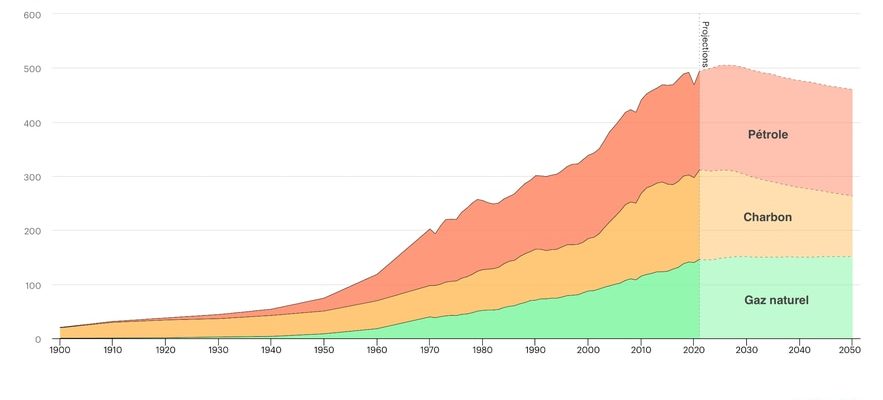One month before COP28, fossil fuel consumption remains “too high” to meet the climate objectives taken since the 2015 Paris Agreement by the international community, according to the latest report from the International Energy Agency (IEA). ). While the international community has committed to reducing its greenhouse gas emissions to limit warming to 1.5°C, these are currently “significant enough” to cause warming of around 2.4°C. C during this century.
The desired objective is therefore still very far away, even if the IEA judges that bending “the emissions curve” to be able to contain global warming to 1.5°C is still “possible”. The path promises to be “very difficult”. An encouraging sign nonetheless, clean energy has made a “phenomenal leap” in recent years, judges the agency.
Stronger policies to achieve the goals
This report of more than 300 pages is published a few weeks before crucial negotiations at the 28th United Nations Climate Conference in Dubai from November 30 to December 12. The future of fossil fuels should be at the heart of lively debates. “The transition to clean energy is underway around the world and it is inevitable. It’s not a question of ‘if’, it’s just a question of ‘when’ – and the sooner the better everyone”, insisted the executive director of the AIE Faith Birol on the occasion of the release of the document.
The list of boxes to check is still long to meet the deadlines to which we have committed. By 2030, the IEA estimates that there should be ten times more electric vehicles on the road in the world than today. The share of renewables in the global electricity mix should approach 50% (compared to 30% currently). Progress is already there, with investments in clean energy up 40% since 2020. But “stronger policies are needed”. In short, decisions in favor of the generalization of renewable energies and for the drastic reduction of possible energies.
“Given the tensions and volatility that characterize traditional energy markets today, claims that oil and gas represent safe or secure choices for the entire world are unfounded,” Fatih also warned. Birol. OPEC, the oil exporting cartel, recently declared that the world would still need fossil fuels for many years.
Increasing clean production to support emerging economies
In its scenario based on current policies, the IEA expects demand for gas, oil and coal to peak within the decade. After that, the share of fossil fuels in global energy supply, which has remained at around 80% for decades, will decline to 73% before 2030. Global energy-related C02 emissions could thus have peaked before 2025.
Fossil fuels expected to peak this decade
© / The Express
In this race to fight climate change, countries will above all have to “redouble collaboration and cooperation”. “The urgent challenge is to accelerate the pace of new clean energy projects, particularly in many emerging and developing countries,” according to the IEA. The agency also recommends increasing investments in the energy transition in these countries, outside of China, fivefold by 2030.
“The speed at which emissions fall will largely depend on our ability to finance sustainable solutions to meet the growing energy demand of fast-growing economies,” stressed Faith Birol. “Governments, businesses and investors must support clean energy transitions rather than hinder them,” he added, citing the “benefits” in terms of security of supply, jobs and quality of energy. air to develop carbon-free energy technologies.
